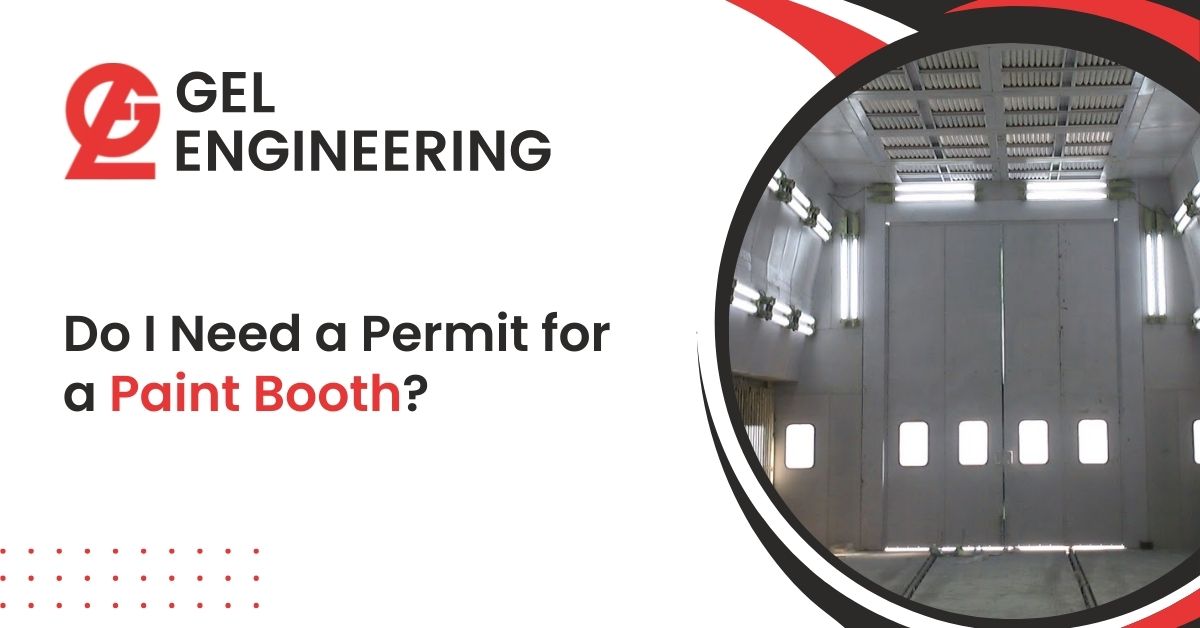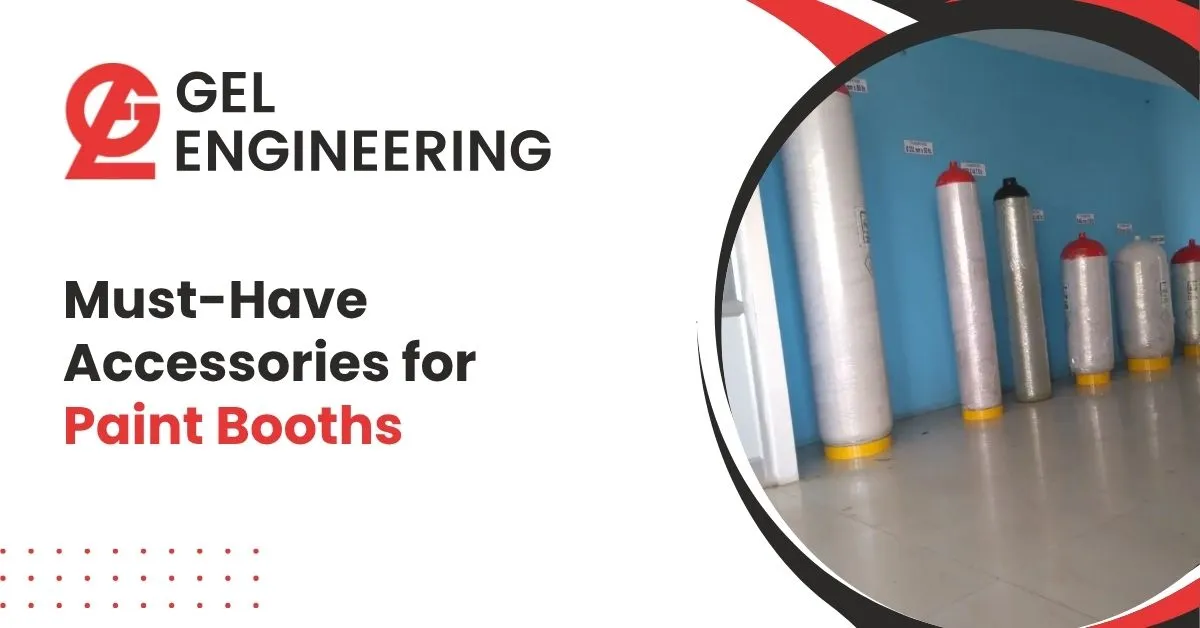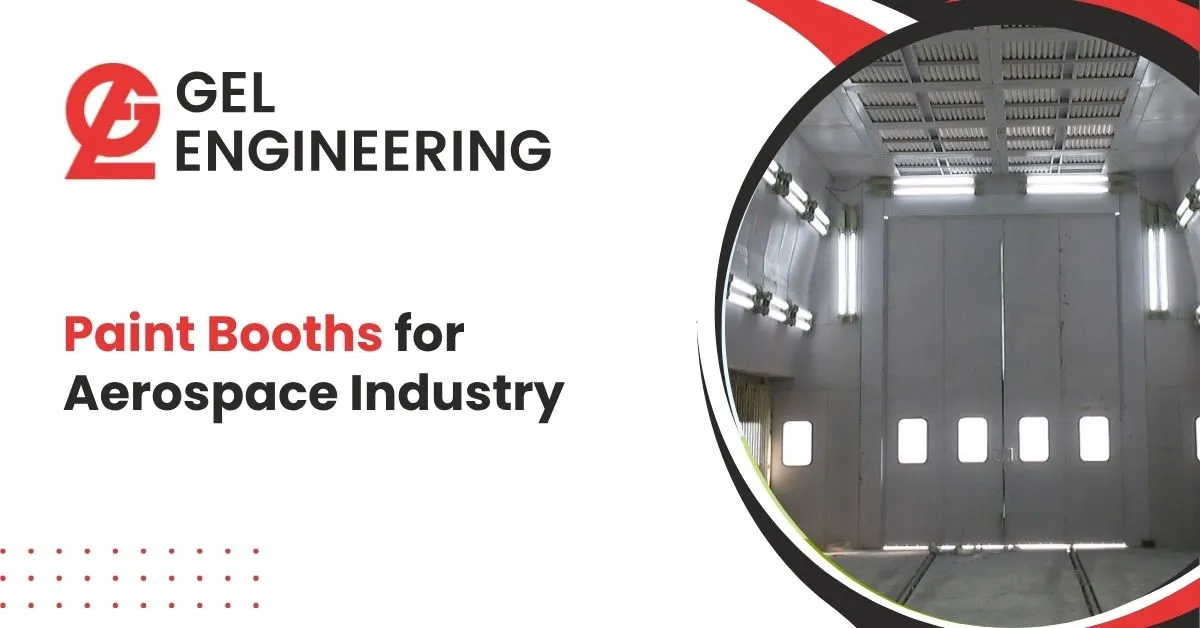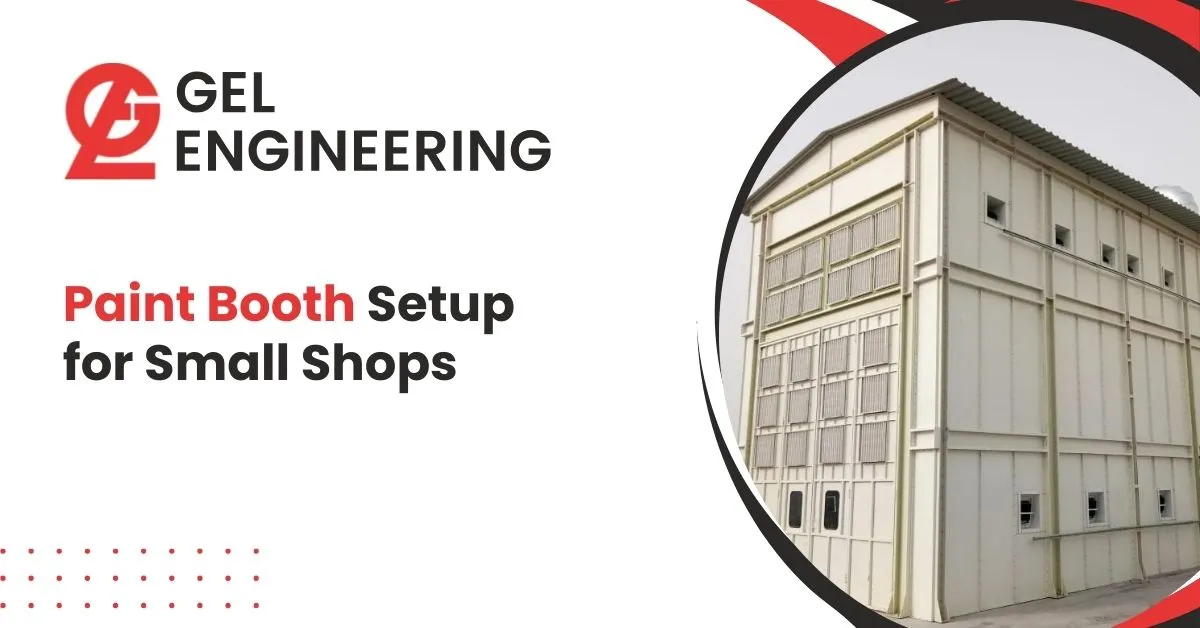Enhance Performance, Safety & Efficiency in Your Spray Painting Process When it comes to industrial…

If you’re planning to set up a paint booth for industrial or commercial purposes, one of the most important steps is understanding the legal requirements, including whether or not you need a permit. Paint booths are essential for controlled environments in industries like automotive refinishing, furniture manufacturing, and even small-scale craft operations. However, due to environmental and safety regulations, securing the necessary permits is crucial to ensure compliance with local laws.
In this blog, we’ll explore the key factors that determine whether you need a permit for a paint booth and provide insights into the process.
Why Permits are Required for Paint Booths
A paint booth’s primary purpose is to provide a controlled area for spray painting that minimizes health hazards and environmental impact. Because paint booths use hazardous chemicals such as solvents and volatile organic compounds (VOCs), governments and regulatory bodies enforce strict guidelines. Permits are required to:
- Ensure compliance with environmental regulations (air quality, VOC emissions).
- Meet fire safety standards and reduce the risk of workplace accidents.
- Guarantee that health and safety protocols are followed to protect workers and the public.
Factors That Determine If You Need a Permit
Whether or not you need a permit for your paint booth largely depends on the scale and nature of your operation. Here are some key factors that influence the need for a permit:
Location and Local Regulations
The regulations for paint booths can vary significantly based on location. In the United States, for example, federal regulations are enforced by the Environmental Protection Agency (EPA), while local governments may impose additional requirements through state or city environmental and safety agencies. Before setting up a paint booth, check with your local authorities to determine specific permit requirements.
Size and Type of Paint Booth
The size of your paint booth and its intended use will also impact whether a permit is needed. Larger booths, particularly those in industrial settings, are more likely to require permits due to their potential environmental impact. On the other hand, smaller, portable booths may not need a permit, but it’s essential to verify with local authorities.
Emissions of VOCs and Hazardous Air Pollutants (HAPs)
One of the primary concerns for regulatory agencies is the release of VOCs and HAPs into the atmosphere. If your paint booth uses materials that emit these pollutants, you will likely need an air quality permit. This includes both automotive paint booths and those used in industrial settings where solvent-based paints are common.
Fire and Explosion Hazards
Spray painting often involves flammable chemicals, which present fire and explosion risks. Local fire codes typically require that paint booths be equipped with proper ventilation, explosion-proof lighting, and fire suppression systems. Ensuring your paint booth complies with these standards may require a fire safety permit.
Workplace Safety Regulations
Occupational safety is another critical factor. Paint booths must comply with OSHA (Occupational Safety and Health Administration) regulations, which may require you to have safety systems like proper ventilation, personal protective equipment (PPE), and emergency exit plans in place. Failure to meet OSHA standards could result in the need for additional permits or fines.
How to Apply for a Paint Booth Permit
If your operation requires a permit, follow these steps to get your paint booth approved:
Research Local Regulations: Contact your local environmental, safety, and fire departments to determine what specific permits you need.
Complete Necessary Applications: Most permit applications will require detailed information about the paint booth, including its dimensions, ventilation systems, emission controls, and types of paints and solvents used.
Schedule an Inspection: Before a permit is issued, you may need an on-site inspection to ensure the booth complies with local codes.
Submit Environmental Impact Data: If you’re dealing with VOCs, you’ll likely need to submit data about the potential environmental impact of your booth, including emission levels.
Follow Up on Approval: Once you’ve submitted your application, follow up with the regulatory bodies to ensure everything is in order. Approval times may vary, so planning ahead is essential.
Consequences of Not Having a Permit
Operating a paint booth without the necessary permits can lead to serious consequences, including:
Fines and Penalties: You may be subject to hefty fines if your operation is found to be non-compliant with local regulations.
Operational Shutdown: Regulatory agencies can order the shutdown of your paint booth until you meet the required standards.
Increased Liability: Without proper permits, your business could face higher liability in the event of a fire, explosion, or environmental damage.
Frequently Asked Questions
Do small-scale paint booths need a permit?
It depends on local regulations and the materials being used. Check with your local authorities to see if your small paint booth needs a permit.
What permits are typically required for a paint booth?
Permits for paint booths often include environmental (air quality), fire safety, and workplace safety permits, depending on your location and the nature of your operations.
How long does it take to get a paint booth permit?
The process can take several weeks to months, depending on the complexity of your application and the requirements of your local authorities.
Conclusion
In most cases, the answer is yes—you do need a permit for a paint booth, especially if your operation involves significant use of hazardous chemicals or industrial-scale processes. Whether you’re a small business or a large manufacturing facility, it’s critical to comply with local environmental and safety regulations to protect your business, employees, and the environment.




